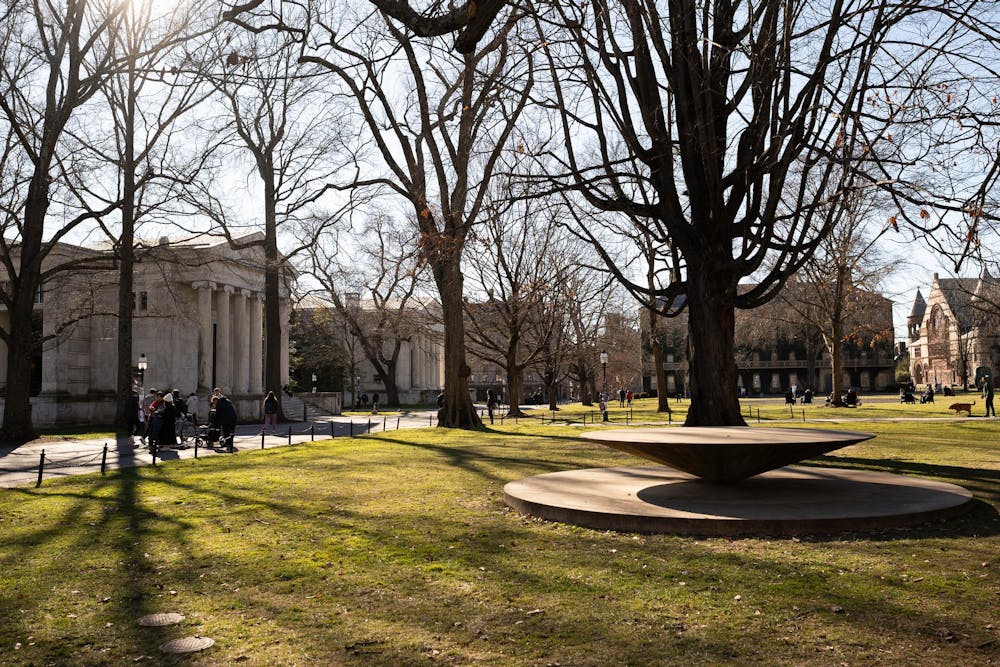During the 2021-2022 school year, the Committee on Discipline (COD) heard 28 cases that resulted in a student’s separation from campus. Now, the COD is introducing a discipline sanction that may keep some suspended students on campus.
The COD implemented the “suspension (not served)” sanction as a consequence for violations where separation from the University may not be warranted. The new sanction falls between disciplinary probation and a one-semester suspension from campus in terms of severity, Deputy Dean of Undergraduate Students Joyce Chen explained in an email to The Daily Princetonian.
On Friday, the Honor Committee will vote on whether to implement the new sanction for Honor Code violations. While the COD investigates and rules on violations regarding academic work that takes place out of class and “serious non-academic misconduct,” the Honor Committee hears cases on potential academic misconduct during in-class examinations.
Between Fall 2017 and Spring 2022, the Honor Committee adjudicated 76 cases. During the 2021–22 academic year, the COD oversaw 1,072 cases.
Chair of the Honor Committee Caroline Schuckel ’25 told the ‘Prince’ that members of the committee were receptive at a preliminary meeting where the amendment was discussed.
“I think everyone on the committee fortunately aligns in the view that separating people from school, community, friends is not productive and is not something that people want to do,” Schuckel said.
If the Honor Committee votes to implement the suspension (not served) sanction, the Undergraduate Student Government (USG) will have the final vote on the amendment to the Honor Code at their meeting on Sunday.
Chen told the ‘Prince’ that she discussed the sanction during USG Ad-Hoc Committee meetings, as well as with several other peer institutions.

“From my conversations with the ad-hoc committee as well as other students over the years, it is my understanding that expanding the available sanctions to include suspension (not served) is appealing to students as well,” she said.
The idea was raised again at a quarterly meeting between members of the Honor Committee, University deans, and the Office of the General Counsel for the University. In the past, attendees also discussed the number of classrooms where exams take place that do not have clocks, leading students to check their phones to see how much longer they have to complete the exam.
Chen wrote that, if a student receives a suspension with or without separation from campus, the committees will consider whether their separation is “warranted.”
“As the facts of each case will differ, the disciplinary body will look at various factors, including the nature and seriousness of the violation, the nature and/or seriousness of any prior violation(s), or other circumstances that the body finds sufficient to permit suspension (not served),” she continued.

Schuckel hopes that the sanction, if added, will carry the weight of suspension without requiring the student to leave the University and move the Honor Committee in a “kinder” direction.
“I have had a hard time, in adjudication, with there being a lack of gray area between probation and suspension,” Schuckel said. “Those are pretty far apart penalties,” she added, expressing that the concept of suspension (not served) “always seemed like a very far away possibility.”
Like the traditional suspension, the new sanction would appear on a student’s transcript and their disciplinary record, which the University would release to a third party — like a medical school — if authorized by the student.
While Schuckel acknowledged the concern of some members of the Honor Committee that the sanction could be used in place of probation, she believes that cases would typically be “downgraded” to suspension (not served) instead of being “moved up from a probation.”
On Friday, the Honor Committee will also vote on an amendment to increase the size of the committee from 15 to 18 members in order to make scheduling easier and accommodate growing class sizes.
“We see this as appropriate,” Shuckel said. “I think as the University wants to grow class sizes, the reasonable inference would be that case number and case load could grow as well.”
Correction: A previous version of this article stated the Committee on Discipline (COD) heard 28 cases that resulted in a student’s separation from campus in 2023. The ‘Prince’ regrets this error.
Isabel Yip is a senior News writer for the ‘Prince.’








